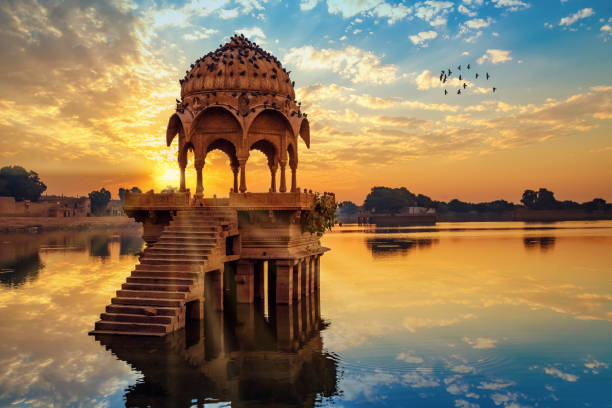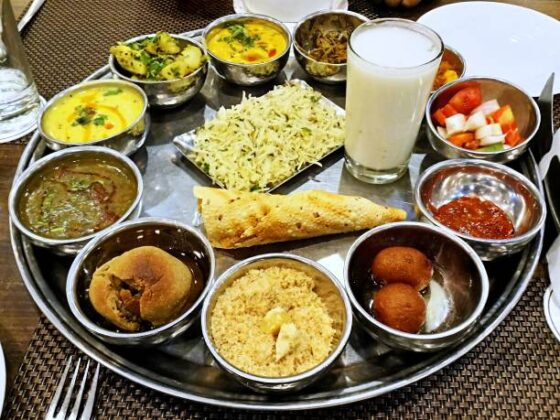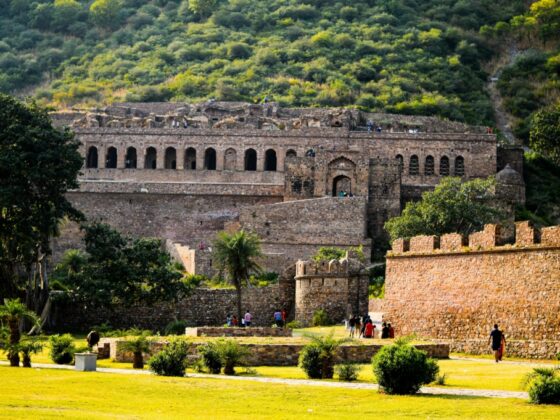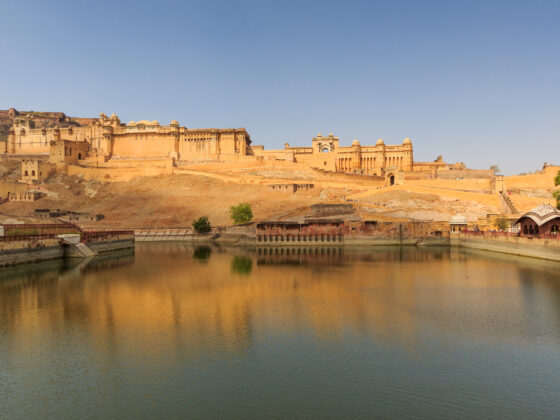The Culture of Rajasthan: A Royal and Vibrant Legacy

Rajasthan, often called the “Land of Kings,” boasts one of India’s most vibrant and colorful cultures. Its rich heritage blends ancient traditions, royal grandeur, and ethnic diversity. From its art and architecture to music, festivals, and cuisine, Rajasthan reflects the influence of Rajput, Mughal, and Maratha rule. Each region in the state carries distinct traditions, creating a dynamic cultural mosaic.
1. Language
Main Language: While Hindi serves as the official language, Rajasthani dialects—such as Marwari, Mewari, and Dhundhari—are spoken widely across the state.
Other Languages: English is also used, particularly in cities and by the educated population.
2. Art & Craft
Rajasthan has nurtured artistic excellence for centuries. Its creativity thrives in:
-
Miniature Paintings: Local artists, especially from Mewar, Marwar, and Kishangarh, depict court scenes, animals, and daily life with intricate detail and vibrant colors.
-
Block Printing: Towns like Jaipur, Sanganer, and Bagru excel in hand-block printed textiles that combine vivid dyes with traditional designs.
-
Pottery: Jaipur’s blue pottery, known for its Persian origin and bright glaze, has become a famous artistic export.
-
Jewelry: Rajasthani artisans craft exquisite Kundan, Meenakari, silver, and gold jewelry, often adorned with precious stones.
-
Textiles: Tie-dye (Bandhani), mirror work, and embroidery embellish everything from garments to home decor.
3. Music and Dance
Rajasthan’s musical heritage brings its history to life:
-
Ghoomar: Women perform this graceful dance during festivals and weddings, often dressed in vibrant lehengas.
-
Kalbeliya: Performed by the Kalbeliya tribe, this fast-paced snake dance captivates with its spins and fluid movements.
-
Folk Music: Manganiyars and Langas sing traditional ballads accompanied by instruments like the sarangi, morchang, and dholak.
-
Folk Dances: Performances like Kachchhi Ghodi and Terahtali combine storytelling with rhythm and costume.
4. Cuisine
Rajasthani cuisine is both flavorful and practical, developed to suit the desert climate and royal palate.
-
Dal Baati Churma: This iconic trio includes baked wheat balls, lentils, and a sweet wheat dish.
-
Laal Maas: A fiery mutton curry famous for its bold red chili flavor.
-
Gatte ki Sabzi: Gram flour dumplings cooked in yogurt-based gravy.
-
Ker Sangri: A unique preparation of wild berries and beans, often enjoyed with roti.
-
Mawa Kachori & Ghevar: Rich desserts that reflect the royal culinary legacy.
-
Rajasthani Lassi: A creamy, cardamom-flavored yogurt drink, especially refreshing in the summer.
5. Clothing
Rajasthani attire reflects both climate and culture.
-
Men wear colorful turbans (safa), kurta, and dhoti, often adorned with embroidery or bandhej (tie-dye) designs.
-
Women wear vibrant ghagras (skirts), cholis (blouses), and odhnis (scarves), heavily embellished with mirror work and bright patterns like leheriya and bandhani.
-
Footwear: Handmade leather mojari and juttis complete the look.
6. Festivals
The people of Rajasthan celebrate life with grandeur and devotion.
-
Pushkar Camel Fair: One of the world’s largest camel fairs, it includes races, music, crafts, and local performances.
-
Gangaur: Women honor Goddess Gauri through songs, prayers, and decorated idols.
-
Teej: Celebrated during the monsoon, it marks the union of Shiva and Parvati with swings, songs, and sweets.
-
Makar Sankranti: The skies of Jaipur fill with colorful kites in friendly competitions.
-
Diwali: Families light lamps and burst fireworks in one of the state’s grandest celebrations.
7. Architecture
Rajasthan’s architecture is a testament to its martial and regal past.
-
Forts: Structures like Mehrangarh (Jodhpur), Amber (Jaipur), and Chittorgarh were built to withstand sieges while showcasing royal grandeur.
-
Palaces: The City Palace of Udaipur, Jai Mahal, and Umaid Bhawan reflect refined aesthetics and opulence.
-
Temples: The Dilwara Temples and Eklingji Temple combine spiritual significance with intricate design.
8. Traditional Occupations
Beyond royalty, Rajasthan thrives on skilled craftsmanship and agriculture.
-
Artisans specialize in carpet weaving, silverwork, stone carving, textile printing, and pottery.
-
Local markets, especially in Jodhpur, Udaipur, and Jaipur, bustle with handmade goods reflecting centuries-old traditions.
Conclusion
Rajasthan’s culture is not just a part of its past—it lives on in its people, cities, and traditions. From grand forts to folk dances, from spicy curries to soothing music, Rajasthan offers a mesmerizing journey through time. Anyone visiting this regal land can feel its heartbeat in every color, song, and flavor.
Plan a Visit – WhatsApp: +91 88599 99459








